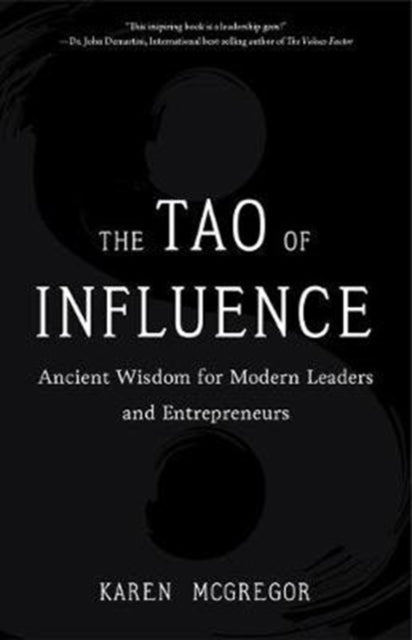
Promoting Integrity in the Work of International Organisations: Minimising Fraud and Corruption in Projects
 Limited Time Sale
Limited Time Sale$27.28 cheaper than the new price!!
Free cash-on-delivery fees for purchases over $99
Product details
| Management number | 201818122 | Release Date | 2025/10/08 | List Price | $27.29 | Model Number | 201818122 | ||
|---|---|---|---|---|---|---|---|---|---|
| Category | |||||||||
This book is a comprehensive guide to promoting integrity and preventing fraud and corruption in international organizations, such as multilateral development banks. It covers various issues, including procurement, compliance, corporate governance, business ethics, anti-money laundering, and effective methods and tools for prevention, proactive monitoring, and detection of misconduct.
Format: Paperback / softback
Length: 204 pages
Publication date: 22 July 2022
Publisher: Springer Nature Switzerland AG
This comprehensive book delves into the critical realm of promoting integrity and mitigating fraud and corruption within international organizations, particularly multilateral development banks like the European Investment Bank, World Bank, Asian/Inter-American/African Development Banks, and European Bank for Reconstruction and Development. It offers a thorough examination of various aspects, encompassing procurement, compliance, corporate governance, business ethics, anti-money laundering measures, and a selection of pertinent case studies. Furthermore, it explores effective strategies and tools for prevention, proactive monitoring, and the timely detection of misconduct, emphasizing the importance of holding accountable those responsible for such unethical practices.
The book begins by setting the stage, outlining the significance of maintaining integrity and combating corruption in the context of international organizations. It highlights the detrimental impact of unethical practices on the reputation, effectiveness, and sustainability of these institutions. The authors then delve into the intricacies of promoting integrity, covering topics such as procurement practices, compliance mechanisms, corporate governance structures, and business ethics guidelines.
Procurement is a key area of focus, as it involves the acquisition of goods, services, and works from external parties. The book examines the challenges and risks associated with procurement, including the potential for fraud, corruption, and unethical practices. It provides practical insights and recommendations on how to enhance transparency, accountability, and competition in procurement processes, while mitigating the risks of unethical behavior.
Compliance is another critical aspect of promoting integrity. The book explores the importance of adhering to legal, ethical, and regulatory standards in all aspects of an organization's operations. It discusses the development and implementation of effective compliance programs, including risk assessment, training, and monitoring mechanisms. It also highlights the role of whistleblowers in detecting and reporting misconduct, emphasizing the need for robust protection mechanisms for those who raise concerns.
Corporate governance is another crucial area examined in the book. It explores the role of boards, management, and stakeholders in ensuring the integrity and accountability of an organization. It discusses the principles of good governance, including transparency, accountability, and responsibility. It also provides practical guidance on developing and implementing effective corporate governance practices, including board composition, risk management, and internal controls.
Business ethics is a fundamental aspect of promoting integrity. The book discusses the ethical principles and values that guide business conduct, including honesty, transparency, fairness, and respect for human rights. It provides practical insights and recommendations on how to embed ethical practices into an organization's culture, including the development of ethical policies, codes of conduct, and training programs.
Anti-money laundering measures are also discussed in the book, as they play a critical role in combating financial crimes and promoting economic stability. The book examines the legal, regulatory, and operational aspects of anti-money laundering, including the identification, reporting, and investigation of suspicious activities. It also highlights the importance of cooperation between different stakeholders, including law enforcement agencies, financial institutions, and international organizations.
A selection of pertinent case studies is included in the book to illustrate the practical application of the discussed principles and practices. These case studies showcase the successes and challenges faced by international organizations in promoting integrity and combating fraud and corruption. They provide valuable insights and lessons learned that can be applied to other organizations seeking to enhance their integrity and accountability.
In addition to the theoretical discussions, the book also provides effective methods and tools for prevention, proactive monitoring, and the timely detection of misconduct. It emphasizes the importance of a comprehensive approach that involves the engagement of all stakeholders, including employees, management, board members, and external auditors. It discusses the development of risk management frameworks, internal controls, and audit procedures to ensure the integrity and accuracy of financial reporting.
Furthermore, the book discusses the importance of sanctioning those responsible for misconduct. It recognizes that punishment alone is not sufficient to deter future unethical practices; rather, it should be coupled with prevention measures and rehabilitation programs. The book explores the various mechanisms and processes for sanctioning individuals and organizations, including legal proceedings, administrative actions, and public disclosure.
In conclusion, this comprehensive book offers a valuable resource for professionals, policymakers, and stakeholders involved in promoting integrity and combating fraud and corruption within international organizations. It provides a thorough examination of various aspects, encompassing procurement, compliance, corporate governance, business ethics, anti-money laundering measures, and relevant case studies. By highlighting effective methods and tools for prevention, proactive monitoring, and detection, the book aims to empower individuals and organizations to uphold the highest standards of integrity and accountability in their work.
Weight: 355g
Dimension: 235 x 155 (mm)
ISBN-13: 9783030739188
Edition number: 1st ed. 2021
Correction of product information
If you notice any omissions or errors in the product information on this page, please use the correction request form below.
Correction Request Form
















